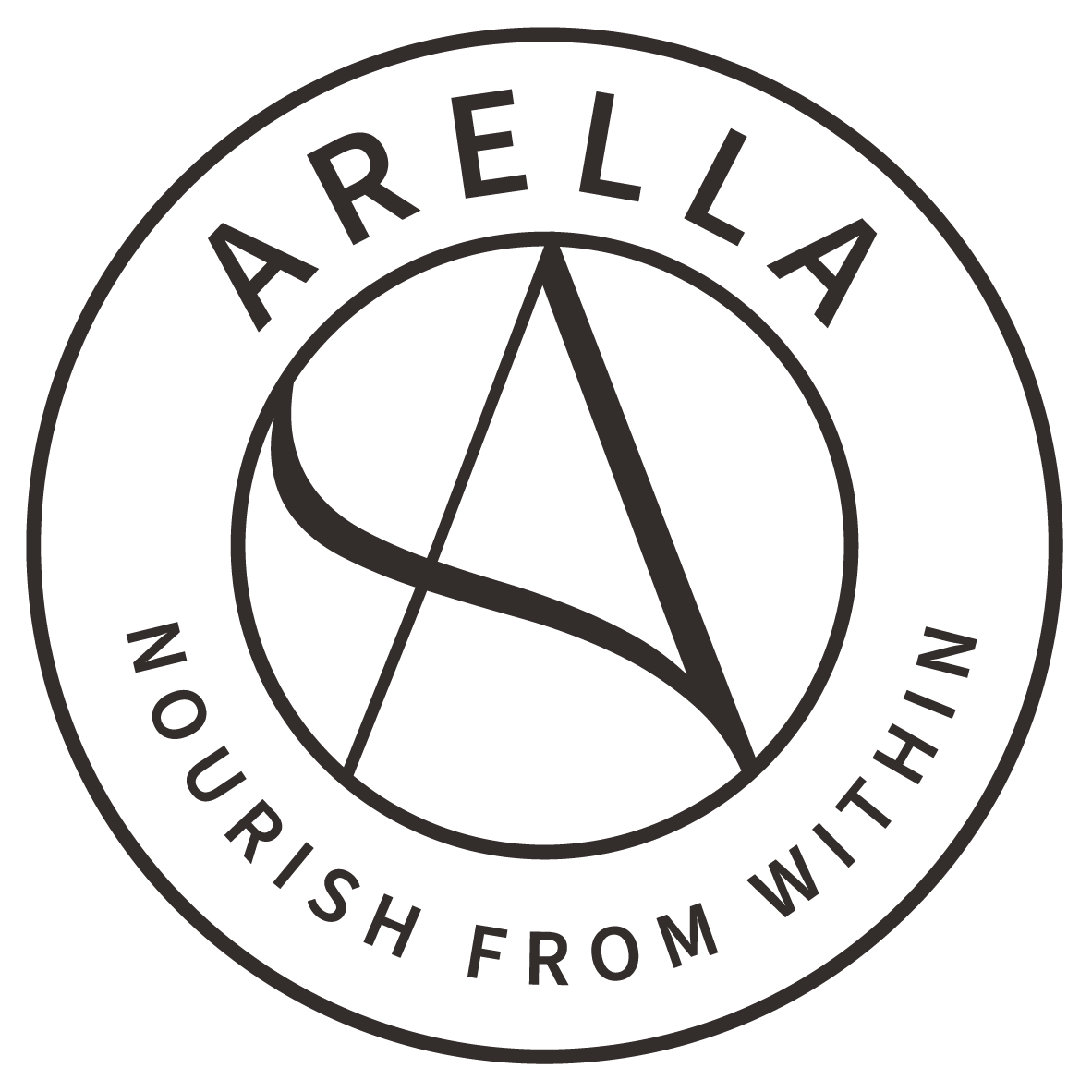Hair changes during menopause are something many women notice; it can cause insecurity and embarrassment, so not all women talk openly about the issue.
You might spot more hair in the shower, notice a widening parting, or feel your hair’s texture changing as hormones fluctuate.
If you’re experiencing hair loss during menopause, we want you to know that you’re not alone - it’s a very common symptom - and there are several ways to support your hair and overall wellbeing during this next stage of your life.
How Menopause Affects Hair: Causes and Early Signs
Hair loss is one of the most common changes women notice during this stage of life.
Menopause hair loss usually develops gradually, and it’s directly linked to shifting hormone levels.
As oestrogen and progesterone levels fall, the balance between these and androgens (male hormones that women also have in smaller amounts) changes.
Oestrogen and progesterone help keep hair in its active growth phase for longer, so when they decline, the hair cycle can shorten.
More follicles enter the resting phase sooner, leading to increased shedding, slower regrowth, and finer strands over time.
Androgen levels may also play a role. Higher sensitivity to these hormones can cause the follicles to shrink, particularly around the crown and temples, which is why some women experience female-pattern thinning during menopause.
You might start to see early signs of menopause hair loss, such as:
● More strands on your brush, pillow, or in the shower
● A widening parting or thinner patches near the temples
● Hair that feels drier, frizzier, or less resilient than before
These changes can be unsettling, but they’re a normal response to hormonal fluctuations.
It’s also worth noting that menopause isn’t always the sole cause of hair loss – stress, thyroid issues, iron deficiency, and certain medications can all make shedding worse.
Still, if your hair loss occurs alongside other menopause symptoms like hot flushes, mood changes, or irregular cycles, it’s very likely that hormones are the main factor.

Can Hair Loss from Menopause Grow Back?
One of the most common questions about menopause hair loss is whether it can grow back.
In many cases, it can, but the process takes time and depends on how well the body is supported through hormonal changes.
Once oestrogen levels stabilise after menopause, new growth often becomes possible, although it may take several months to notice visible improvement.
Hair grows slowly, around a centimetre per month, so patience and consistency make a real difference.
A nutrient-rich diet, gentle scalp care, and stress management all help create the right conditions for stronger, healthier hair – we’ll share more on this below.
Even if it doesn’t return exactly as before, many women find they can restore strength, shine, and volume with the right care.
Natural Ways to Support Hair Health During Menopause
Menopause and hair loss are closely linked, but supporting your hair naturally can make a real difference.
A holistic approach – focusing on internal nourishment, scalp care, and overall well-being – often brings the best results.
Nutrition first
Hair is made mostly of protein, so aim to include quality plant and animal proteins in your meals. Healthy fats from avocados, nuts, and olive oil can also help keep the scalp hydrated.
Vitamins and minerals like zinc, iron, vitamin D, and biotin are essential for strong hair follicles. Deficiencies in any of these can worsen shedding or slow regrowth.
Collagen plays a key role, too
Collagen makes up much of the structure beneath the scalp, helping to anchor hair follicles and maintain elasticity.
During menopause, natural collagen production drops sharply – by around 30% in the first five years – which can contribute to both skin and hair thinning.
Supplementing with a vegan collagen formula like ours may help replenish these levels and support the body’s natural repair processes.
Lifestyle balance also matters
High stress can raise cortisol, a hormone that disrupts hair growth cycles.
Prioritising relaxation, gentle movement, and good sleep supports hormonal balance and overall vitality.
And don’t overlook scalp care
Gentle massage can boost circulation and nutrient delivery to follicles, while avoiding harsh heat or tight hairstyles helps reduce breakage.

The Role of Menopause Supplements for Managing Hair Loss
Supporting your hair during menopause often requires a whole-body approach, balancing hormones, restoring nutrients, and protecting the scalp from stress.
Supplements can play an important role in that process.
The Arella Collagen and Pause bundle combines key nutrients, bringing you two supplements that pack a real punch in addressing both sides of menopause hair loss: structural support and hormonal balance.
Arella’s vegan collagen contains VeCollal®, a biomimetic, plant-based formula that identically matches Type I human collagen.
This is the same collagen type found in skin, hair, and connective tissue, and unlike bovine or marine collagen, the body recognises it immediately.
That means it can be used more efficiently to support hair strength, thickness, and resilience while remaining completely sustainable and cruelty-free.
The formula also includes a blend of key nutrients for healthy hair growth, including vitamin C to support collagen synthesis, biotin to strengthen hair and promote regrowth, and asiaticoside from Centella Asiatica, which helps stimulate collagen production naturally.
Together, they provide a holistic approach to supporting the scalp and follicles from within.
Arella Pause is a menopause supplement that complements our collagen perfectly by supporting hormonal balance and easing common menopause symptoms that can contribute to hair loss.
Its carefully chosen ingredients help regulate oestrogen levels, reduce stress responses, and restore overall equilibrium during this transitional phase.
Taken consistently, this combination helps to maintain strong, healthy hair while also supporting wider wellbeing through menopause.
When used alongside a balanced diet, hydration, and gentle scalp care, the benefits build gradually over time.
As part of Arella’s ongoing commitment to supporting women’s health, the brand is a proud GenM partner, and the Collagen and Pause supplements carry the MTick® – a mark that recognises products specifically developed to support menopause-related symptoms, including hair thinning and hormonal imbalance.
If you’re wondering whether you can take our supplements alongside HRT, the good news is that this is generally safe to do – read more here. Remember to consult your doctor first.

When to Seek Extra Support with Hair Loss
If your hair loss feels sudden, patchy, or severe, it’s always worth checking in with a GP, dermatologist, or trichologist.
Blood tests can help rule out thyroid issues, anaemia, or nutrient deficiencies, and a specialist can guide you toward the right treatment plan.
Some women find that combining professional advice with lifestyle changes and targeted supplementation brings the best improvement.
Caring for Your Hair and Yourself
Menopause can affect so many parts of your body, and noticing changes to your hair can be especially tough. But this stage doesn’t have to mean accepting thinning or loss as inevitable.
With the right support – through nutrition, balance, and gentle care – it’s possible to rebuild strength, shine, and confidence.
The Arella Collagen and Pause bundle is designed to work in harmony with your body during this transition, helping to replenish what’s naturally reduced and restore inner balance.
Combined with a mindful routine and a little patience, it can help your hair feel healthier and more resilient over time.
Most importantly, remember that your body is adjusting, not failing.
Every step you take to care for yourself from the inside out brings lasting benefits that go well beyond your hair.





